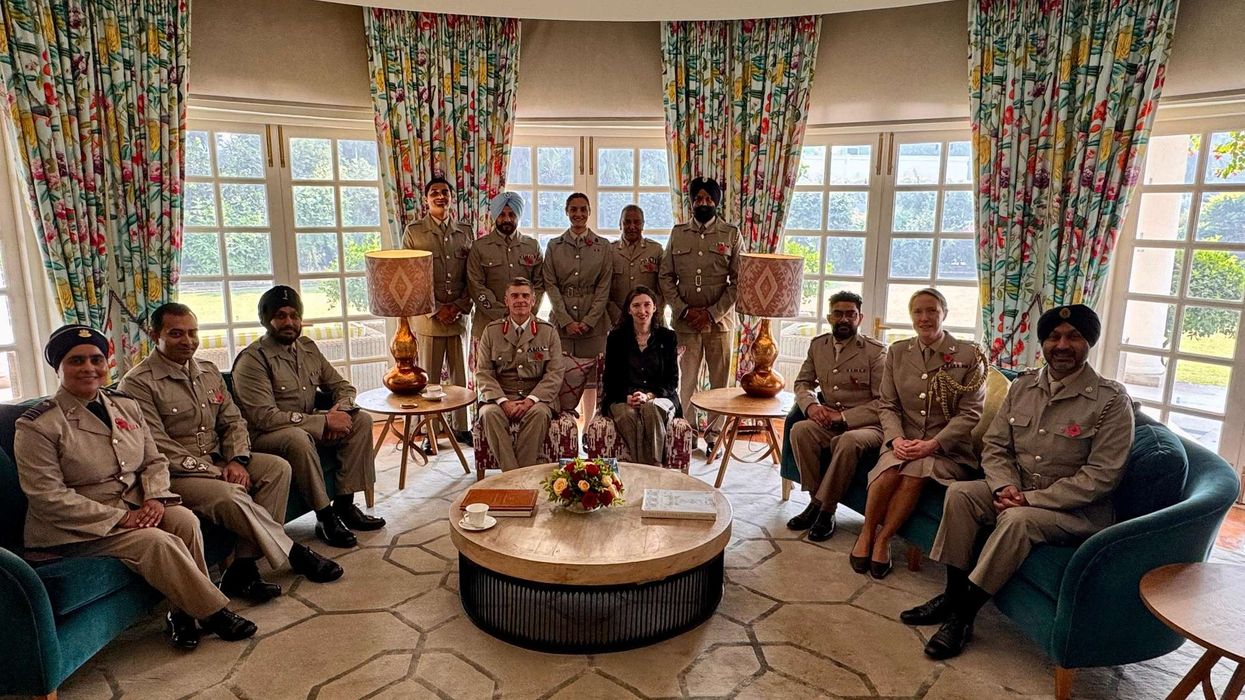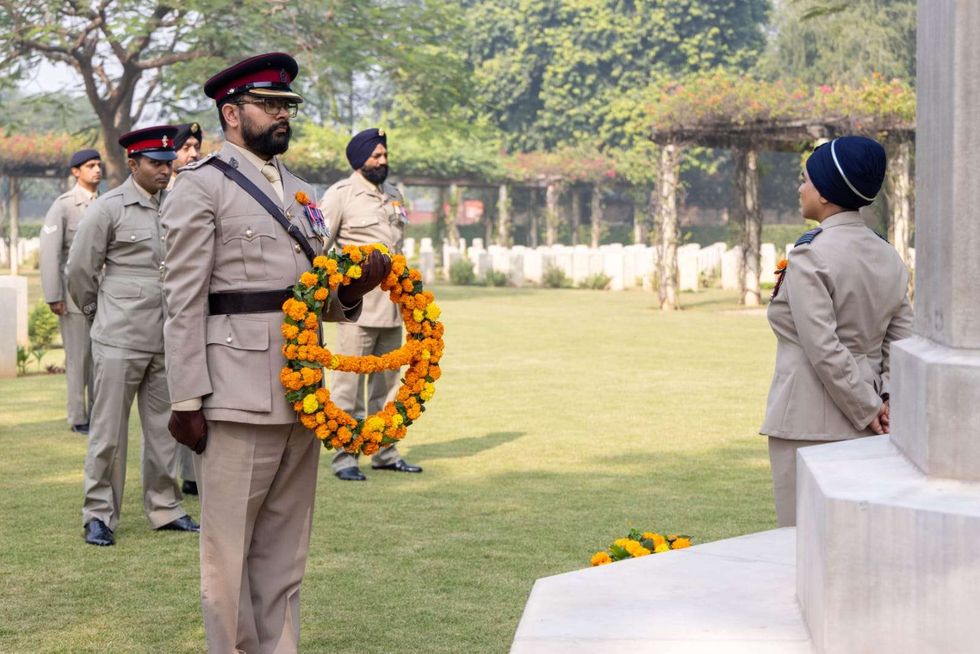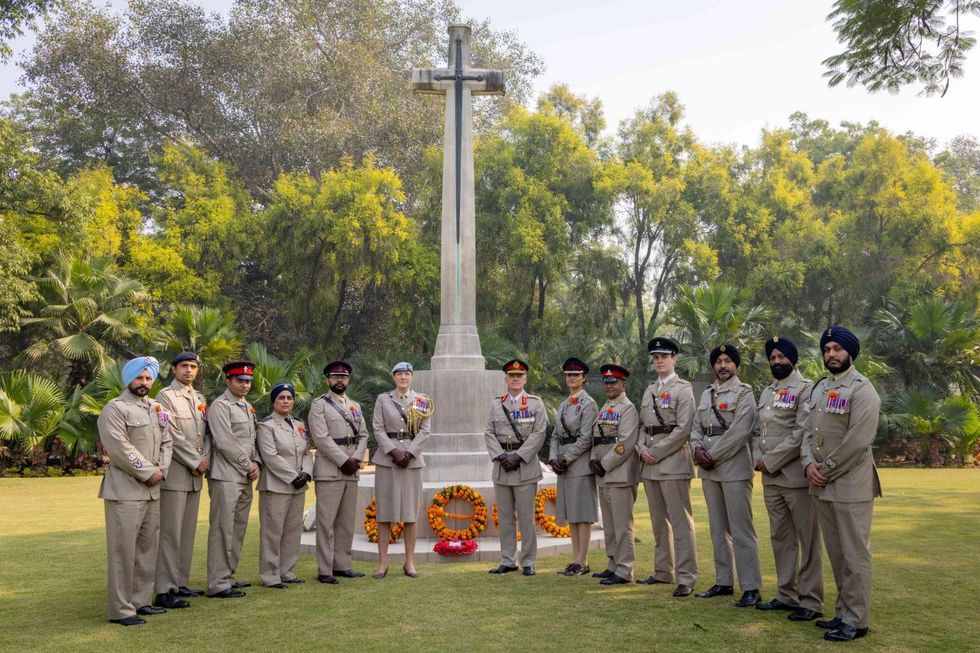By Dr Omar Khan
Director of Runnymede Trust, the UK's leading independent race equality think tank.
From January this year it’s been clear that election was on the cards. Yet throughout this year, or during the election campaign itself, we’ve heard very little about ethnic minority voters.
How do ethnic minorities vote, why do they vote the way they do, and what might be their impact on this election? Unfortunately, at present, pollsters do not include ethnicity as a variable in their analysis, and have smaller and unrepresentative ethnic minority samples, so we have to rely on academic surveys such as Understanding Society and the Ethnic Minority British Election Study (2010) to answer these questions.
From the evidence, we know that ethnicity is perhaps the strongest predictor of vote choice. Stronger than class, stronger than age, and stronger than education. In the 2017 election, 77 per cent of ethnic minorities chose Labour, with 20 per cent choosing the Conservative party. This compares to 68 per cent voting for Labour and 16 per cent for the Conservatives in 2010, while during the 1980s-1990s the evidence suggests that 80 per cent or more of a much smaller ethnic minority electorate then supported Labour.
So Labour has long been and remains the favoured party for ethnic minority voters. Why is this? In general, the evidence suggests that ethnic minority voters are much like white British voters, in that party affiliation matters a lot, and that there are particular issues that matter most to them, and that they align more with whichever party they judge as better on those issues.
Ethnic minorities have historically had a strong party affiliation with the Labour party, though as with other voters this affiliation appears to be weakening. A longstanding explanation for this greater affiliation is that the Labour party passed all of Britain’s anti-discrimination legislation, while the Conservative party was seen to be less supportive if not opposed to such legislation. One interesting exception has been advanced as a hypothesis to explain the (relatively) greater support for the Conservative party among east African Asians: that then-Prime Minister Edward Heath stood up to those like Enoch Powell in the party, and was clear about the British government’s responsibility for east African Asians.
This leads to the important fact that ethnic minorities vary in their support for the Labour party, and that this variance has increased since 2010 or so. In 2010, 60 per cent of Indian, 61 per cent of Pakistani, 72 per cent of Bangladeshi, 78 per cent of Caribbean voters and 87 per cent of African voters chose Labour. Although Indian and Pakistani voters then supported the Labour party to the same degree, their second party preference was much different, with one-quarter of Indians supporting the Conservatives, and one-quarter of Pakistanis supporting the Liberal Democrats.
By 2017, however, Bangladeshi, Black Caribbean and Pakistani support for the Labour party approached or exceeded 90 per cent, while it dropped slightly among Black African voters (though still over 80 per cent), and, most notable, among Indian voters to 55 per cent or so. Most notable, the Conservative party has made a small breakthrough among Indian voters, getting around 40 per cent of their support.
Even within these headline figures support varies. For example, in the London mayoral elections, Boris Johnson lost 11 of the 13 electoral wards with the most Indian voters, and did particularly poorly – among his worst in the whole of the city – in areas with larger numbers of Sikhs (he lost he lost Southall Green 81.4 per cent -12.1 per cent and Southall Broadway 82.4 per cent-11.5 per cent), indicating the need to distinguish between Hindu, Sikh and Muslim Indian voters. However, Johnson also lost and underperformed in wards with a large number of Hindu voters, such as Wembley Central (losing by 40 points), Alperton (-36 in the ward with the most Hindus), Heston Central and Hounslow Central (by over 20 points).
Another important finding from ward-based data is that while Sadiq Khan got among his best vote share in wards with the most Pakistani and Bangladeshi voters, he actually did worse than Ken Livingstone in these wards. This is just one piece of evidence of a longstanding trend: ethnic minority voters don’t only vote on the basis of the ethnicity or identity of a candidate, but on the basis of issues that matter to them most, whether in London or anywhere else.
There are therefore two variables that limit the electoral viability of a narrow appeal to only one ethnic minority community. First is that they don’t vote mainly on the basis of such appeals, but on the basis of issues such as the economy, unemployment and the NHS. Second is that ethnic minorities are in fact widely distributed in the UK. There are only four constituencies (out of 650) where any single ethnic minority community exceeds the White British population. In most highly diverse seats there are a range of ethnic minority groups, so an appeal only to one community is not only unlikely to win enough votes for a majority, it is more likely to lose votes from other ethnic minority and white British voters.
For this reason it has been somewhat disappointing that the main way ethnic minorities have been covered in this election is whether or not different communities are pitted against each other, and whether they vote solely on the basis of a narrow community interest. This is inaccurate and divisive, and, deliberately or not, reinforces the view that ethnic minorities vote for sectarian reasons, and are different or ‘other’ to ordinary democratic politics in Britain. It also makes it more difficult to bring communities together after the election campaign.
A final word on Brexit. While ethnic minorities were significantly more likely to vote remain in the EU referendum (by a 2:1 margin), the numbers of such voters has been somewhat under-appreciated. More ethnic minorities voted for Brexit that have ever chosen the Conservative party. Will ethnic minority leave voters now consider the Conservatives, given their main election slogan is ‘Get Brexit Done’?
Evidence from the 2017 election suggests not. Compared to areas with large numbers of white leave voters, areas with large numbers of ethnic minority leave voters were much less likely to increase their support for the Conservative party in the 2017 election. And given that twice as many ethnic minorities supported remain, there is also the possibility that a strong pro-Brexit message may reduce the support among ethnic minorities for the Conservative party.
Once the results of the election come in, we’ll have a better idea of the impact of ethnic minority voters in this election, from highly diverse seats in London to marginal seats where the ethnic minority population exceeds the existing majority. It’s unfortunate that neither pollsters, nor political commentators have spent much time considering ethnic minority voters, especially as they are likely to make a difference in a close and unpredictable election.

















Understanding ethnic minority voters in the General Election